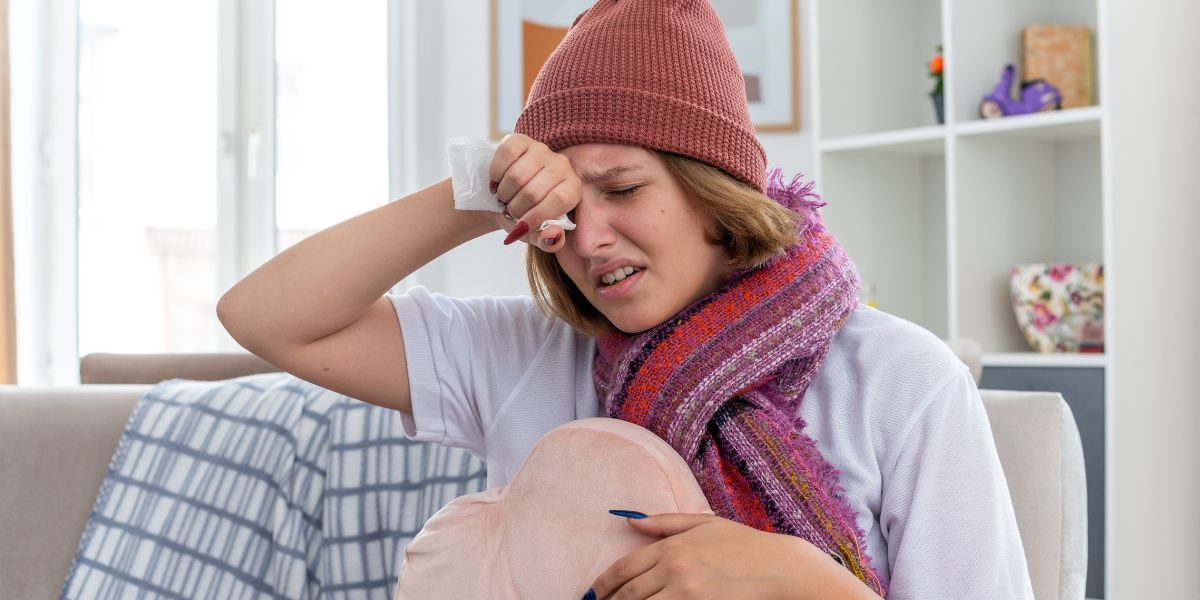Viral Fever: Symptoms, Causes, Diagnosis, Treatment, and Prevention
Viral fever is a common illness that happens when your body’s temperature rises due to a virus. Unlike bacterial infections, viral fevers can’t be treated with antibiotics and need different care. People of all ages can get viral fever, which often comes with symptoms like tiredness, headaches, body aches, and a high temperature. Knowing what causes viral fever, its symptoms, and how to treat and prevent it can help you manage it better.
What are the Symptoms of Viral fever?
Viral fever typically presents with a range of symptoms, which can vary depending on the underlying virus. Common symptoms include:
High body temperature
Chills and sweating
Headache
Fatigue and weakness
Muscle and joint pains
Sore throat
Runny or stuffy nose
Cough
Redness or pain in the eyes
Loss of appetite
What are the Causes of Viral fever?
According to Dr. Meghana Pande, General Physician in Hadapsar, viral fever is caused by a variety of viruses,
Influenza (flu) viruses
Dengue virus
Chikungunya virus
Enteroviruses
Respiratory Syncytial Virus (RSV)
Coronavirus These viruses spread through direct contact with an infected person, inhalation of airborne droplets, or contact with contaminated surfaces.
What are the Types of Viral fever?
Dr. Meghana Pande highlights that viral fevers can be classified based on the specific virus responsible or the affected body systems:
Respiratory Viral Fever: Caused by viruses like influenza and RSV, affecting the respiratory tract.
Enteric Viral Fever: involves gastrointestinal symptoms, often caused by enteroviruses.
Arboviral Fevers: Transmitted by mosquitoes, such as dengue and chikungunya.
Exanthematous Viral Fever: Characterized by skin rashes, like measles and chickenpox.
Viral fever complications
Dr. Meghana Pande, an expert general physician in Hadapsar, warns that while most viral fevers are self-limiting, they can lead to complications in severe cases, especially in vulnerable groups:
Dehydration due to high fever and sweating
Secondary bacterial infections (e.g., pneumonia)
Seizures in children due to high fever
Organ damage in severe viral infections (e.g., dengue)
Respiratory distress in cases like severe influenza or COVID-19
Viral fever in Different Age Groups
Viral fever can affect people of all ages, but certain age groups may be more susceptible, according to Dr. Meghana Pande:
Infants and Young Children: More prone to high fevers and febrile seizures.
Elderly Individuals: Higher risk of complications due to weakened immune systems.
Pregnant Women: Some viral infections can affect the developing fetus.
Preventive Measures to Control Viral Fever
Prevention is key to controlling the spread of viral fevers. Dr. Meghana Pande, General Physician in Hadapsar, recommends the following measures:
Vaccination: Stay up-to-date with vaccines like the flu shot.
Hygiene: Regular handwashing, using hand sanitizers, and avoiding touching the face.
Avoid Crowded Places: Especially during outbreaks.
Mosquito Control: Use insect repellents and nets to prevent mosquito-borne viral fevers.
Healthy Lifestyle: Boost your immune system with a balanced diet, regular exercise, and adequate sleep.
What are the Treatment of Viral fever?
Treatment for viral fever is primarily supportive. Dr. Meghana Pande advises:
Rest: Adequate rest helps the body fight off the infection.
Hydration: Drink plenty of fluids to stay hydrated and reduce fever.
Fever Management: Use over-the-counter antipyretics like acetaminophen or ibuprofen to reduce fever and relieve pain.
Symptom Relief: Decongestants, cough suppressants, and lozenges can help alleviate respiratory symptoms.
Dietary Recommendations in Viral Fever
Proper nutrition is essential for recovery during viral fever. Dr. Meghana Pande, General Physician in Hadapsar, suggests:
Fluids: water, herbal teas, and electrolyte solutions to prevent dehydration.
Light Meals: easily digestible foods like soups, broths, and rice.
Fruits: Vitamin C-rich fruits like oranges and kiwi boost immunity.
Avoid spicy, oily, and heavy foods that may irritate the stomach.
Vaccines and Medications for Viral Fever
While specific antiviral medications may be prescribed for certain viral infections (e.g., oseltamivir for influenza), Dr. Meghana Pande emphasizes the importance of prevention:
Vaccines: Annual flu shots, measles, and varicella vaccines.
Antivirals: May be used in cases like severe influenza or early stages of herpes infections.
How Long Does The Viral Fever Last?
Dr. Meghana Pande explains that viral fever typically lasts between 3 and 7 days, depending on the severity and the type of virus. In some cases, mild symptoms like fatigue or cough may persist for a week or more after the fever subsides.
Can viral fever come back after 2 days?
It’s uncommon for viral fever to recur immediately after recovery, but if it does seeking medical attention as it may indicate a secondary infection or another underlying issue.
Which Medicine is Best for Viral Fever?
For managing fever and pain in viral fever. Ibuprofen may also be used, but it should be taken with caution, especially in children and those with certain medical conditions.
Are antibiotics good for viral fever?
Antibiotics are ineffective against viruses and should not be used to treat viral fever unless there is a secondary bacterial infection. Dr. Meghana Pande, General Physician in Hadapsar, stresses the importance of avoiding unnecessary antibiotic use to prevent antibiotic resistance.
Why Does Viral Fever Increase at Night?
According to Dr. Meghana Pande, body temperature naturally fluctuates throughout the day, often peaking in the evening. During a viral infection, these fluctuations may be more pronounced, leading to higher fevers at night.
Can We Take a Bath in Viral Fever?
Taking a bath during viral fever is generally safe and can help reduce fever. Using lukewarm water and avoiding cold showers, as they may cause discomfort or shivering.
How to Increase Platelet Count in Viral Fever?
Certain viral infections, like dengue, can cause a drop in platelet count. Dr. Meghana Pande suggests the following to support platelet levels:
Hydration: Stay well-hydrated.
Papaya Leaf Extract: Some studies suggest it may help increase platelet count.
Iron-Rich Foods: spinach, red meat, and beans.
Folate-Rich Foods: leafy greens, nuts, and fruits.
What are the levels of symptoms for viral fever?
Dr. Meghana Pande, General Physician in Hadapsar, categorizes viral fever symptoms as:
Mild: low-grade fever, mild headache, slight fatigue.
Moderate: high fever, pronounced fatigue, muscle aches, sore throat.
Severe: Very high fever, severe body aches, difficulty breathing, confusion, or seizures (in children).
Viral fever is a common yet manageable condition that requires proper care and attention. Dr. Meghana Pande, a trusted general physician in Hadapsar, advises understanding its symptoms, causes, and treatment options to help you recover more effectively and prevent complications. Always consult a healthcare provider if symptoms persist or worsen, and take preventive measures to protect yourself and others from viral infections.




